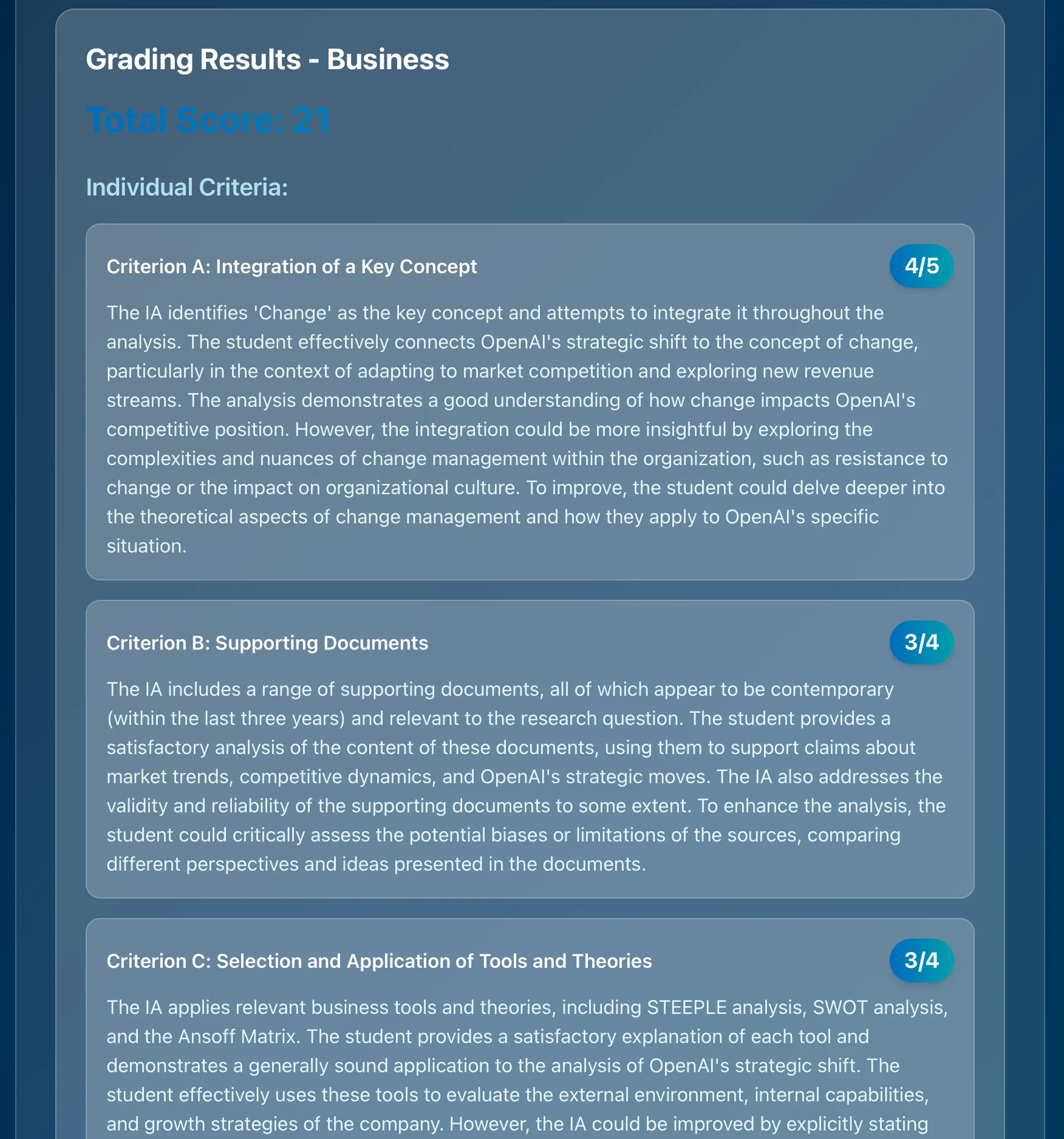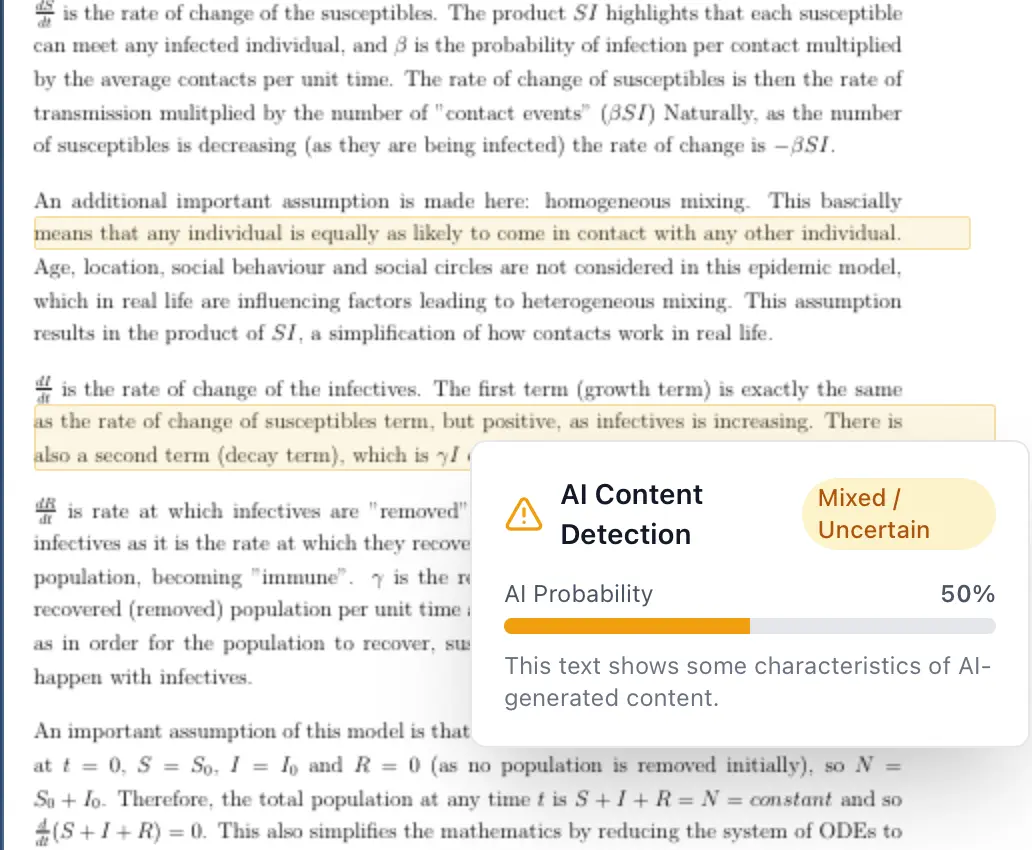How to Select Texts and Sources for Your World Religions IA
Crafting a compelling and insightful World Religions Internal Assessment (IA) starts with a crucial step: selecting the right texts and sources. This guide will walk you through the process of choosing appropriate materials, developing a strong rationale, and ensuring your research aligns with the IB criteria. By carefully selecting your sources, you'll lay a solid foundation for a high-scoring IA that demonstrates your understanding of religious concepts and research methodologies. We'll cover everything from primary religious texts to scholarly analyses, ensuring you have the knowledge and tools to excel in this important assessment.
Introduction (Answer the Query Immediately)
The IB World Religions IA, also known as the Investigative Study, requires you to delve deeply into a specific aspect of a religious tradition. A critical component of this investigation is the selection of relevant and reliable texts and sources. Choosing the right materials is paramount to developing a strong rationale, conducting thorough research, and ultimately achieving a high score. This guide provides a comprehensive overview of how to select texts and sources for your World Religions IA, covering everything from primary religious texts to scholarly analyses. We'll equip you with the knowledge and strategies to make informed decisions, ensuring your research is both academically rigorous and personally engaging. This guide will help you understand how to choose sources that will help you score highly on Criterion A: Rationale and preliminary research.
Struggling with IB Assessments?
Get instant, detailed feedback on your work with AI that understands IB criteria.

Core Content Sections
1. Understanding the IA Requirements
Before diving into source selection, it's essential to understand the specific requirements of the World Religions IA. Remember, the IA is scored out of 30 marks across five criteria (A–E). Criterion A, "Rationale and preliminary research," is particularly relevant here, accounting for 8 marks. This criterion assesses the clarity and development of your rationale for the study, as well as the quality and range of your initial research and sources.
According to the official IB rubric, a score of 7-8 requires "Thorough, wide-ranging research; excellent supporting evidence; rationale is clearly stated and very well developed." This means you need to demonstrate a comprehensive understanding of the topic through your choice of sources.
2. Identifying Relevant Religious Traditions and Topics
The first step is to identify the religious tradition and specific topic you want to explore. Consider your personal interests and areas where you feel you can make a meaningful contribution. Some popular topics include:
- The role of women in a specific religious tradition: This could involve analyzing religious texts and historical accounts to understand the evolving roles and status of women.
- The impact of a specific religious practice on society: This could explore the social, economic, or political consequences of a particular religious ritual or belief.
- The interpretation of a religious text in different contexts: This could involve comparing and contrasting how a specific scripture is understood and applied in different cultures or time periods.
- The intersection of religion and social justice: This could examine how religious principles are used to advocate for social change and address issues like poverty, inequality, or environmental degradation.
3. Types of Texts and Sources
Once you have a topic, you need to identify the types of texts and sources that will be most relevant to your research. These can be broadly categorized as:
- Primary Sources: These are original materials directly related to the religious tradition you're studying. Examples include:
- Religious scriptures (e.g., the Bible, the Quran, the Bhagavad Gita)
- Theological treatises
- Hagiographies (biographies of saints or religious figures)
- Religious art and architecture
- Personal accounts of religious experiences
- Secondary Sources: These are scholarly analyses, interpretations, and commentaries on primary sources. Examples include:
- Academic books and journal articles
- Biographies of religious figures
- Documentaries and films
- Reputable online resources (e.g., academic databases, university websites)
Example: If you're researching the concept of karma in Buddhism, your primary sources might include the Tipitaka (Buddhist scriptures) and commentaries by prominent Buddhist scholars. Secondary sources would include academic books and articles analyzing the concept of karma from different perspectives.
4. Evaluating the Quality and Reliability of Sources
Not all sources are created equal. It's crucial to evaluate the quality and reliability of your sources to ensure your research is credible and accurate. Consider the following factors:
- Author's Expertise: Is the author a recognized expert in the field? What are their credentials and affiliations?
- Publisher's Reputation: Is the source published by a reputable academic press or organization?
- Objectivity: Is the source free from bias or agenda? Does the author present multiple perspectives on the topic?
- Currency: Is the source up-to-date? Has it been revised or updated recently?
- Peer Review: Has the source been peer-reviewed by other experts in the field?
Example: When researching a controversial topic, such as the role of religion in political conflicts, it's important to consult sources from different perspectives and evaluate their biases. Avoid relying solely on sources that promote a particular viewpoint or agenda.
5. Developing a Strong Rationale
Your rationale explains why your research is important and what you hope to achieve. It should clearly articulate your research question and how your chosen texts and sources will help you answer it.
Example:
"This investigation explores the evolving interpretations of the concept of jihad in Islam, focusing on the perspectives of both traditional Islamic scholars and contemporary Muslim thinkers. By analyzing key passages from the Quran, Hadith, and scholarly commentaries, this study aims to understand how the concept of jihad has been used to justify both peaceful activism and violent extremism. The rationale for this study stems from the need to address misconceptions about Islam and promote a more nuanced understanding of its teachings on peace and conflict."
6. Documenting Your Sources
Properly documenting your sources is essential for academic integrity and to avoid plagiarism. Use a consistent citation style (e.g., MLA, Chicago, APA) and create a comprehensive bibliography.
Example:
- Book: Esposito, John L. Islam: The Straight Path. Oxford University Press, 2011.
- Journal Article: Kurzman, Charles. "Bin Laden and Other Thoroughly Modern Muslims." Journal of Civilizations, vol. 10, no. 2, 2003, pp. 63-78.
Common Challenges/Mistakes Section
Students often face several challenges when selecting texts and sources for their World Religions IA. Here are some common mistakes to avoid:
- Relying too heavily on Wikipedia or other unreliable online sources: While Wikipedia can be a useful starting point, it should not be your primary source of information. Always verify information from Wikipedia with reputable academic sources.
- Using outdated or irrelevant sources: Ensure your sources are current and directly relevant to your research question.
- Failing to evaluate the quality and reliability of sources: Don't assume that all sources are trustworthy. Carefully evaluate the author's expertise, publisher's reputation, and objectivity.
- Neglecting primary sources: While secondary sources are important, don't forget to engage with primary religious texts and materials.
- Plagiarism: Always properly cite your sources to avoid plagiarism.
Pro Tip: Get AI-Powered Grading
Stop second-guessing your grades. Get instant feedback aligned with official IB rubrics.

Advanced Tips/Strategies Section
To take your World Religions IA to the next level, consider these advanced tips and strategies:
- Consult with your teacher or a religious studies expert: Seek guidance from experienced educators or scholars who can provide valuable insights and recommendations.
- Explore interdisciplinary perspectives: Consider incorporating insights from other disciplines, such as history, sociology, anthropology, or philosophy, to enrich your analysis.
- Conduct original research: If possible, consider conducting interviews with religious leaders or practitioners to gather firsthand perspectives.
- Engage with diverse viewpoints: Seek out sources that represent a range of perspectives on your topic, including those that challenge your own assumptions.
- Develop a critical lens: Don't simply accept information at face value. Analyze your sources critically and identify any underlying biases or assumptions.
Technology and Modern Assessment Section
Technology is transforming the way we research and assess academic work, including the IB World Religions IA. AI-powered tools can help you identify relevant sources, evaluate their credibility, and even analyze their content. However, it's crucial to use these tools responsibly and ethically.
One of the biggest challenges for teachers is providing consistent and detailed feedback on student work. Marksy, as a leading AI grading assistant, helps teachers provide consistent, detailed feedback on IB assessments, including the World Religions IA. Marksy uses official IB criteria to ensure accuracy and fairness, providing students with rubric-aligned scoring, detailed criterion-by-criterion feedback, and suggestions for improvement. This saves educators valuable time while maintaining the quality of assessment. With Marksy, students gain a clearer understanding of their strengths and weaknesses, enabling them to focus on areas that need improvement and ultimately achieve higher scores.
Conclusion with Clear Next Steps
Selecting the right texts and sources is a critical step in crafting a successful World Religions IA. By understanding the IA requirements, identifying relevant sources, evaluating their quality, and developing a strong rationale, you can lay a solid foundation for your research. Remember to avoid common mistakes, seek guidance from experts, and leverage technology responsibly.
Next Steps:
- Brainstorm potential topics: Consider your personal interests and areas where you feel you can make a meaningful contribution.
- Conduct preliminary research: Explore different religious traditions and topics to identify areas where you can find sufficient and reliable sources.
- Develop a research question: Formulate a clear and focused research question that will guide your investigation.
- Create a source list: Compile a list of potential primary and secondary sources that you will use in your research.
- Evaluate your sources: Assess the quality and reliability of your sources using the criteria outlined in this guide.
- Refine your rationale: Develop a strong rationale that explains why your research is important and how your chosen sources will help you answer your research question.
Ready to take your IB World Religions IA to the next level? Try Marksy for free today and experience the power of AI-driven feedback! See how Marksy can help you understand the IB rubric, improve your IA score, and streamline your grading workflow. Sign up for a free trial now and unlock your full potential!